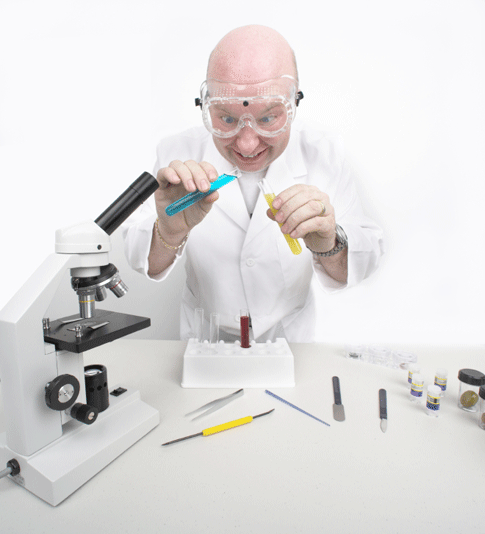Are Genome Hackers the Future of Biotech?
Picture biological ‘engineering,’ fun,’ and ‘homegrown’ in the same sentence and you have the essence of this recent “mad science” contest.

Annalee Newitz thinks genome hackers are the future of biotech. So much so that her blog io9 (part of Gawker Media) recently sponsored a worldwide synthetic biology “mad science” contest dedicated to encouraging the emergence of homebrew labs, grassroots genetics, and, of coure, garage genome hackers.
A short 3 months ago, Newitz asked contestants to build a real life form using MIT’s registry of standard biological parts known as “biobricks” and/or other scientifically credible materials. At stake was an all-expense paid trip to Hong Kong to attend the fourth annual Synthetic Biology Conference. The winner will rub elbows with leading researchers in the biotech field, but not before having his entry passed by an elite panel of judges: MIT synthetic biologist Drew Endy (who helped create biobricks), UC Berkeley biology researcher Terry Johnson, Spore game developer Jason Shankel, and UC Berkeley geneticist Michael B. Eisen, co-founder of the Public Library of Science. This was no lightweight contest.
So who is io9’s first annual “mad scientist”? None other than Vijaykumar Meli of New Delhi, who invented a form of bacteria that bonds with the root systems of rice plants to help them process nitrogen more efficiently. Using these biobricks as the foundation, a working schematic deemed reasonably achievable by the judges has been discovered. The ramifications of such an invention include the potential to cut fertilizer costs by up to 50%.
During this election year when genetic engineering is such an
attention-grabbing policy issue, Ms. Newitz wants to remind the public that “the next great synthetic biology breakthrough might happen in someone’s garage.” Kind of gives a whole new meaning to the term “garage sale”, don’t you think?